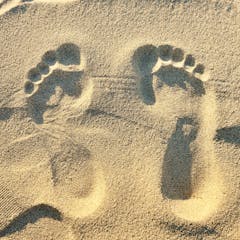
Articles on Genetic privacy
Displaying all articles

Biobanks collect and store large amounts of data that researchers use to conduct a wide range of studies. Making sure participants understand what they’re getting into can help build trust in science.

Environmental DNA provides a wealth of information for conservationists, archaeologists and forensic scientists. But the unintentional pickup of human genetic information raises ethical questions.

Both Macron and Madonna have expressed concerns about genetic privacy. As DNA collection and sequencing becomes increasingly commonplace, what may seem paranoid may instead be prescient.

While the HIPAA Privacy Rule prevents health care providers from sharing your health information without your permission, it doesn’t prevent other people from asking you about it.

Christine Jessop was murdered in 1984 and, 36 years later, DNA evidence finally identified her killer. But the police investigation’s use of genetic genealogical databases raised questions about privacy.

A US judge has allowed police access to the major DNA database without users’ consent (including Australian users). It’s a timely reminder that we urgently need genetic privacy legislation.

Because genetic changes that cause cause health complications can be hereditary, the information affects not only the person with the mutation but also their biological relatives.
